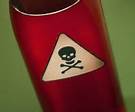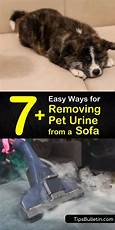Are Herbicides Harmful to Pets?
Herbicides are commonly used to control weeds in lawns and gardens. While they can be effective in keeping unwanted plants at bay, there is some concern about their potential impact on pets.

How Can Herbicides Harm Pets?
1. Direct Contact:
If your pet comes into direct contact with an herbicide, it can irritate their skin and eyes. Signs of contact exposure may include redness, swelling, or itching. In severe cases, the herbicide can be absorbed through the skin and cause systemic toxicity.
2. Ingestion:
If your pet ingests an herbicide, it can cause a range of health problems, including vomiting, diarrhea, and abdominal pain. Some herbicides can also cause neurological problems, such as seizures or tremors. In severe cases, ingestion can lead to death.
3. Indirect Exposure:
Pets can also be exposed to herbicides indirectly by walking on treated lawns or eating grass that has been sprayed. This can lead to skin irritation or gastrointestinal upset. Additionally, herbicides can be tracked into the home on your shoes or clothing, where your pet may come into contact with them.
Which Herbicides Are Most Harmful to Pets?
1. Glyphosate:
Glyphosate is one of the most widely used herbicides in the world. It is found in many common weed killers, including Roundup. Glyphosate can be harmful to pets if they are exposed to it through direct contact, ingestion, or indirect exposure.
2. 2,4-D:
2,4-D is another commonly used herbicide. It is found in products such as Weed-B-Gon and Trimec. 2,4-D can be harmful to pets if they are exposed to it through direct contact, ingestion, or indirect exposure.
3. Dicamba:
Dicamba is a herbicide that is used to control broadleaf weeds. It is found in products such as Banvel and Clarity. Dicamba can be harmful to pets if they are exposed to it through direct contact, ingestion, or indirect exposure.
How to Protect Your Pets from Herbicides
1. Keep Pets Away from Treated Areas:
The best way to protect your pets from herbicides is to keep them away from treated areas. This means keeping them off of lawns and gardens that have been recently sprayed. You should also avoid applying herbicides on windy days, as the chemicals can drift and spread to other areas.
2. Rinse Your Pet's Paws:
If your pet does come into contact with an herbicide, rinse their paws and fur thoroughly with water. This will help to remove the chemicals and reduce the risk of irritation or ingestion.
3. Call Your Veterinarian:
If you think your pet has been exposed to an herbicide, call your veterinarian immediately. They can assess your pet's condition and provide appropriate treatment.
Declaration: All article resources on this website, unless otherwise specified or labeled, are collected from online resources. If the content on this website infringes on the legitimate rights and interests of the original author, you can contact this website to delete it.




